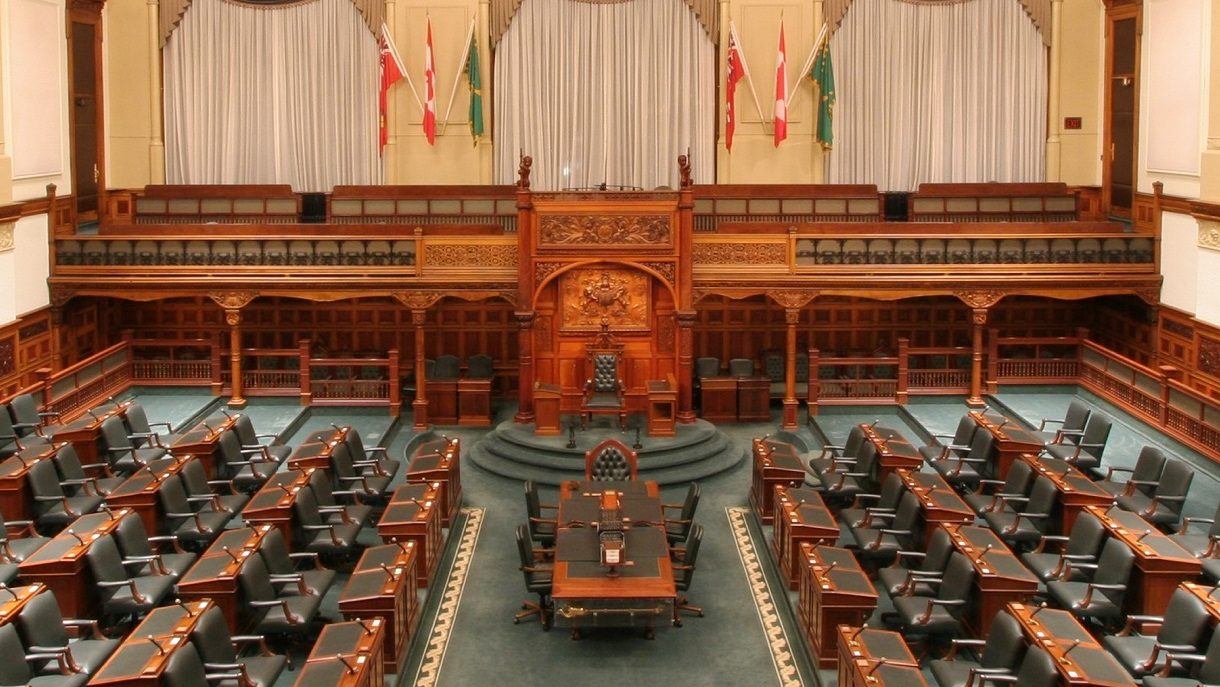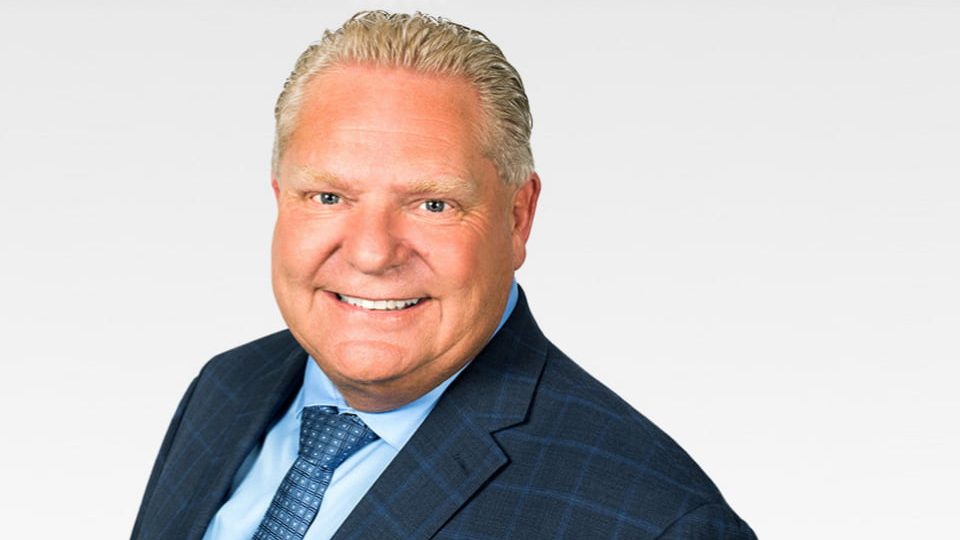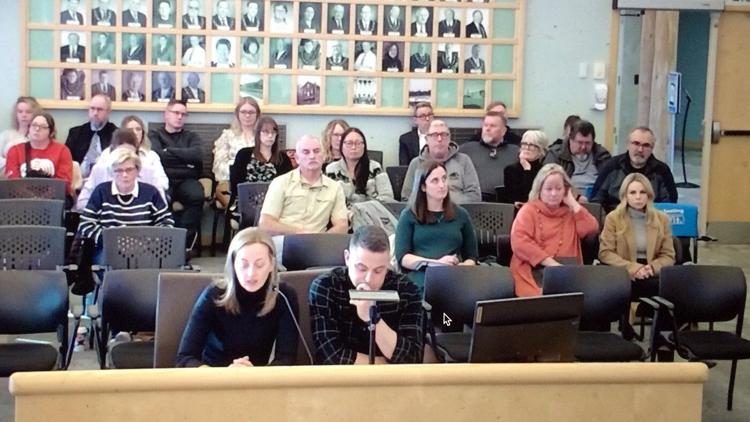On September 22, 2015 the Ontario Liberal government entered into 10-year Master Framework Agreement (MFA) effective January 1, 2016 that gave the Beer Store – a joint venture between foreign-owned, publicly-traded beer companies Labatt and Molson – a government regulated monopoly over selling 12 and 24-packs of beer in Ontario. The Beer Store sold 62% of the beer in Ontario in 2023 (down from over 90% in the early 1980s). Annual beer consumption in Ontario has been declining over the past 10 years, 24.3% less in 2023 than in 2014.
Expanding sales of beer and wine into all retailers (including convenience stores) was one of several 2018 election promises by the Ford government to liberalize alcohol sales. Alcohol had already been expanded in 2015 to 450 grocery stores and big box stores such as Walmart in addition to the existing 450 Beer Stores, more than 660 LCBO stores, and about 280 LCBO Convenience Outlets.
The MFA was set to expire automatically on January 1, 2026.
Ford’s government decided it couldn’t wait another year and a half for the agreement to expire, choosing instead to pay out $225M to Molson and Labatt to break the 10 year long Beer Store contract 1 year, 7 months, and 9 days early on May 23, 2024 – equivalent to a $382,653 per day early cancellation fee.
The Ontario Liberal Party says total costs of the deal could be up $2B once you add up service fees to the LCBO, rebates to The Beer Store, alcohol license fees and tax revenue changes, and the Financial Accountability Office of Ontario has agreed to investigate.
At least 20% of the alcohol on display in grocery and convenience stores must be made by craft producers, and the other 80% will be brands owned by Molson and Labatt, providing all alcohol producers with greater reach and visibility.
The Ontario government has been working hard to expand access to alcohol and paying hundreds of millions of dollars in early cancellation fees in the process comes at a time when housing, healthcare and education are in crisis and desperate need of funding.
Impact
In summary, the Ontario government is requiring the The Beer Store and the LCBO to share retail alcohol retailing and compete on price with the private sector.
The biggest winners will be:
- Convenience stores: 7-Eleven, Couche-Tard the largest convenience store operator in Canada and a Canadian publicly traded multinational corporation that owns and operates Circle K and On the Run convenience stores
- Grocery stores: Loblaws, Sobeys, Metro, Walmart and Costco
- Gas stations: Canadian Tire, Esso, Shell
Unionized jobs put at risk
LCBO has 8,000 unionized workers and The Beer Store’s has 6,000 union members – 14,000 well-paying, good quality jobs.
The 8,500 new private alcohol retailers have lower operating costs thanks to their lower wage, non-unionized workers. This will enable them to squeeze out more profits than the LCBO and The Beer Store at a given price point, taking business away from them and putting downward pressure on wages in the industry.
Retail profits on wine will shift from public coffers to private companies
All of the LCBO’s profits go straight to the Ontario government, amounting to $2.5B in 2023. These funds are supposed to be used to support critical services like healthcare, education, and infrastructure, but have been withheld by the Ford government. 80% of this profit comes from sales at LCBO retail stores, while the rest comes from wholesale sales to:
- Licensed establishments (bars, restaurants, venues): $598M
- Grocery stores: $410M
- LCBO Convenience Outlets: $252M
- The Beer Store: $229M
Licensing fees
The annual licensing fees private retailers pay to sell and deliver beer, cider, wine and ready-to-drink products are:
- $500 per convenience store
- $3,250 per grocery stores
Ontario government earns less when alcohol is sold at a grocery store
the LCBO earns less off that bottle of wine sold in the grocery store than if it had been sold at an LCBO store. That’s because the LCBO provides that wine to the supermarket with what it calls a “wholesale discount,” 10 per cent off the pre-HST & deposit price.
In the above example, that amounts to $1.22 knocked off the LCBO’s take.
That means, on this $14 bottle of wine, the LCBO earns $5.97 if it’s sold at an LCBO store, versus $4.75 if it’s sold at a grocery store.
CBC
The 10% wholesale discount will apply to all private retailers until 2026 and after that, the Ontario government says it will come up with a consistent wholesale price structure that adds taxes, mark-ups and fees to a supplier’s set price.
Grocery stores were previously required to sell products for the same price as the LCBO, but now private retailers will be allowed to set their own prices as long as they are more than Ontario’s minimum prices per litre of alcohol.
Taxes on alcohol compared to LCBO markup
By comparison, Ontario brought in $600M from taxes on alcohol (excise, customs duties and HST) in 2023, considerably less than the $2.5B in profits raised for government programs coming from LCBO markups.
Retail profits on beer will shift from Big Beer and LCBO to grocery and convenience stores
The much larger network of grocery and convenience stores will be more convenient for consumers, but convenience comes at a price – gas stations and corner stores will likely charge more for these impulse purchases, increasing their share of the industry’s profits.
The 5 companies that control 74% of the grocery market in Canada have economic power to control prices.
Ontario’s beer market is dominated by the Beer Store, a huge organization primarily owned by three multinational conglomerates. Unsurprisingly, most of the beer sold at TBS is from its three main owners. Nowhere else in the world does a government give the biggest beer companies special privileges at the expense of the rest of the industry.
This arrangement is highly profitable for large brewers, but bad for consumers and the rest of the brewing and retail industry.
2019 report to the Minister of Finance by Ken Hughes
Obviously, killing The Beer Store’s stranglehold on the exclusive ability to sell Ontarians packaged beer is a good thing. The Beer Store, conceived of as a cooperative of Ontario’s breweries, became a farce once the biggest breweries on earth commenced their ruthless strategy of buying up or pushing out as many independent breweries as possible in the name of bland, yellow, carbonated capitalism.
Beer columnist Ben Johnson
Timeline
October 31, 2024 – All grocery and box stores can sell beer, cider, wine, ready-to-drink beverages and large packs
September 16, 2024 – Financial Accountability Office investigates Ford government’s alcohol expansion
The Financial Accountability Office of Ontario (FAO), Ontario’s independent financial watchdog, opened an investigation to conduct a value-for-money audit of the expansion of alcohol sales to convenience stores across Ontario ahead of the end of the end of the province’s contract with the Beer Store.
The audit will estimate the financial costs and benefits of accelerated expansion, including “foregone LCBO revenue from the wholesale discount to retailers, the Cost of service fees paid to the LCBO and rebates paid to TBS” as well as tax revenue changes and alcohol license fees, “and compare these fiscal impacts to a scenario where the Province expanded alcohol access at the expiration of the MFA on Dec. 31, 2025.”
The FAO say the investigation should finish in early 2025 but warns: “there are risks to meeting this timeline. The main risk is access to information. The FAO must receive timely information from the Province to complete the project and delays in receiving information could affect the project timeline.”
History has shown that LCBO revenues have continued to grow, year over year, even as successive governments have expanded alcohol sales to new retail stores and allowed bars and restaurants to sell alcohol with take-out and delivery. As LCBO assumes this expanded wholesaling role, we are confident those revenues will grow above current levels
Spokesperson for the Ontario Finance Minister
September 5, 2024 – 4,187 Ontario convenience stores and gas stations can sell beer, wine, cider, and ready-to-drink cocktails
in addition to nearly 3,000 other licensed retail outlets as well as takeaway options from licensed bars and restaurants.
September 4, 2024 – Ontario Finance Minister admits he doesn’t know the true costs of the expansion
there’s always going to be costs,
every nickel, we’re going to make sure it’s accounted for.
Ontario Finance Minister Peter Bethlenfalvy
July 22, 2024 – LCBO President and CEO is on the Board of Directors of the Retail Council of Canada, lobbying to privatize alcohol sales
The Retail Council of Canada’s members include big corporations that would gain a substantial financial benefit from privatizing alcohol sales, including Loblaws, Sobeys, Metro and Walmart.
George Soleas, the President and CEO of the Liquor Control Board of Ontario, a public crown corporation that generates $2.5 billion in revenue for Ontario taxpayers each year, also currently serves on the board of directors of the Retail Council of Canada.
Press Progress
By being on the board of the Retail Council of Canada, a lobby group for private companies that are seeking changes to laws and regulations so they can sell alcohol, Mr. Soleas is clearly in violation of the ethics law for Ontario government employees
Press Progress
July 18, 2024 – 450 grocery stores that are currently licensed to sell beer, cider or wine can sell ready-to-drink beverages and large packs
July 8, 2024 – Ontario Finance Minister doesn’t know how much the alcohol expansion will affect the LCBO’s $2.5B annual contribution to government revenues
It depends on how consumer behaviour is… we’ll see how everything plays out, and then I’ll let you know.
The finance minister’s office now contends that “revenues will grow above current levels.
Ontario Finance Minister Peter Bethlenfalvy to 680 News
July 8, 2024 – Ford government publishes map of alcohol retailers during LCBO strike
The government released a map of where to buy alcoholic beverages (download full list here) and promoted it in a video:
The map included 7124 convenience stores. Circle K had the most locations (530).
May 27, 2024 – Ontario Liberals request FAO audit into Ford government’s alcohol expansion
Some estimates think this could go up to $2 billion and that’s why we’re asking the FAO, the accountability officer to take a look at this, the auditor general to dig into these numbers, these numbers could actually be higher
Bonnie Crombie, Ontario Liberal Party leader
Premier Doug Ford says the move is to support workers:
But I’ll guarantee you one thing Mr. Speaker … all these members here will do like everyone else and go to their convenience store to buy their wine or to buy their beer, I guarantee it.
Premier Doug Ford
May 24, 2024 – Ford government announces alcohol expansion rollout
Ontario government is providing The Beer Store with up to $225 million to make the necessary investments over the next 19 months to support a stable transition to a more open and convenient marketplace, including funding to protect jobs across the province and to keep The Beer Store locations open for the continued availability of recycling and bottle return.
An interim wholesale discount of 10 per cent from the LCBO basic retail price for retailers will apply until 2026.
May 23, 2024 – Agreement terminates The Beer Store agreement, pays Molson and Labatt $225M
March 22, 2024 – Former Prime Minster Stephen Harper – Doug Ford’s friend and late Rob Ford’s fishing buddy – appointed to Couche-Tard Board of Directors
I am honored to join Couche-Tard, a great Canadian company and a global leader in convenience and mobility renowned for its commitment to excellence and innovation
Throughout my career, I have always believed in the power of collaboration and forward-thinking to drive success. I am eager to contribute to Couche-Tard’s continued success and to work alongside a team that is dedicated to making a positive impact on communities around the globe.
Former Prime Minister Stephen Harper
December 14, 2023 – Ford government announces alcoholic beverages will be available in 8,500 new stores by January 1, 2026
We are pleased to see the government move to end the Master Framework Agreement with The Beer Store. By ending the MFA, Premier Ford is moving Ontario forward and opening up choices for consumers; more grocery stores will soon sell more alcohol options in all formats and sizes – 12-packs, 24-packs, and even larger formats
Diane J. Brisebois President & CEO, Retail Council of Canada
February 10, 2020 – Doug Ford meets with top executive of 7-Eleven
June 2019 – Ford government increases the number of licensed grocery stores to 450
These stores will provide new economic opportunities for businesses across the province, while offering local craft brewers and wineries with greater reach and visibility.
To date, the government has increased choice and convenience and saved consumers money by:
- Letting sports fans drink alcohol at tailgating parties at eligible sporting events.
- Enabling municipalities to make rules about alcohol consumption in public spaces like parks.
- Extending hours of alcohol service at licensed establishments, allowing them to start serving alcohol at 9 a.m.
- Letting the Beer Store, LCBO and other authorized retailers, such as grocery stores and agency stores, sell alcohol from 9:00 a.m. to 11:00 p.m., seven days a week.
- Changing advertising rules to allow for “happy hour” in Ontario.
- Providing flexibility for wineries, cideries, breweries and distilleries to promote their products at manufacturing sites by removing the prescribed serving sizes for “by the glass” licences.
- Pausing beer and wine tax hikes initiated by the previous government.
- Lowering the price floor to allow brewers to sell beer for $1 (Buck-a-beer).
May 27, 2019, Ford government tables legislation to terminate the Master Framework Agreement with The Beer Store
The government plans to introduce legislation that would, if passed and proclaimed, terminate the previous government’s unfair agreement with the Beer Store, allowing Ontario’s government to expand alcohol sales to corner, big-box, and more grocery stores while protecting taxpayers.
May 24, 2019 – “The case for change”: Ontario Special Advisor for the Beverage Alcohol Review report cites lobbyist groups when outlining benefits of alcohol expansion
Modernizing alcohol retail holds the potential to deliver significant economic benefits to Ontarians. The Retail Council of Canada [ie. Loblaws, Sobeys, Metro and Walmart] estimates, based on the experience of British Columbia, that it could increase Ontario’s GDP by $3.5 billion and generate up to 9,100 jobs.1 It could also save Ontarians hundreds of millions of dollars every year by creating more opportunities for one-stop shopping. The Ministry of Finance estimates the value of time saved by being able to buy alcohol while shopping for other items could be up to $250 million per year. Opening additional retail outlets would also make it easier for craft beverage manufacturers to connect with consumers and create jobs.
The Convenience Industry Council of Canada [ie. Circle K, 7-Eleven, Loblaw, Shell] reports that 7 in 10 Ontarians who regularly consume beverage alcohol support the expansion of alcohol sales into convenience stores.2 The Retail Council of Canada reports 73% of Ontarians support the sale of 12 and 24 packs in grocery stores, and 68% support the sale of alcohol at all grocery stores in Ontario.3
May 15, 2019 – Ford government creates ChoiceandFairness.ca in partnership with private industry lobbyists to promote alcohol liberalization, claims that breaking The Beer Store agreement wouldn’t cost the taxpayer
A Treasury Board employee had set up a website using government resources to support the efforts the following lobbyist groups to sell alcohol in Ontario corner stores:
- Ontario Convenience Stores Association (OSCA)
- Convenience Industry Council of Canada [ie. Circle K, 7-Eleven, Loblaw, Shell]
- Retail Council of Canada [ie. Loblaws, Sobeys, Metro and Walmart]
- Ontario Craft Brewers
- Ontario Craft Wineries
Fiction: Re-evaluating the contract with the Beer Store will cost taxpayers up to $1B in damages
Fact: Let’s be clear: nowhere in the province’s contract with the Beer Store are there any set financial penalties for ending the contract early or breaching any of its conditions
Facts & Fictions
July 4, 2018 – President of convenience store lobbyist contacts Ontario Finance Minister’s personal email address
Vic, I know you are still getting settled in your new ministry and as an association we wanted to start a discussion within your ministry on the opening of retailing beer as part of the election commitment
Ontario Convenience Stores Association (OSCA) CEO Dave Bryans
The minister responded from his Progressive Conservative caucus email account, normally reserved for internal political correspondence and, like his private account, not subject to freedom-of-information laws.




Leave a comment
All comments are reviewed prior to appearing on the site.
Rules: